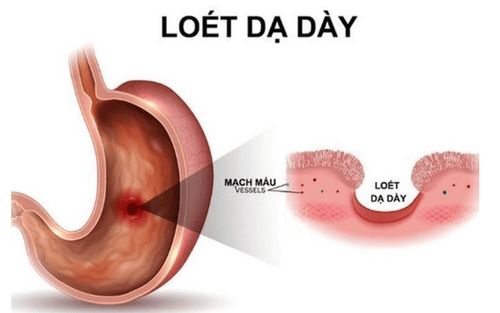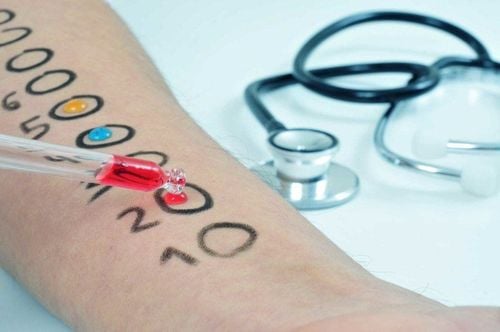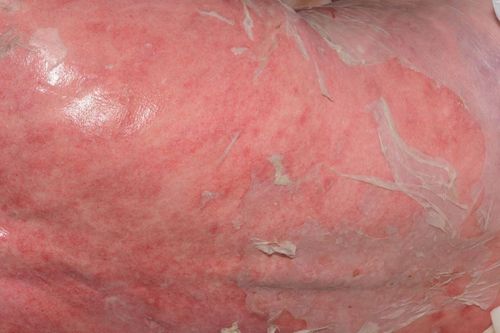This is an automatically translated article.
The expectorant group is a mucolytic drug that reduces the consistency of sputum, mucus to make it easier to cough up, and expels mucus from the respiratory tract more easily. However, because expectorants can cause some adverse reactions, they should be used with special caution, especially in children.
1. What is an expectorant?
Cough is one of the symptoms caused by diseases in the respiratory tract. Cough includes: cough with phlegm and cough without phlegm (dry cough).
Cough with phlegm is a type of cough with the condition of spitting up mucus or sputum,... A common medicine used to treat cough with phlegm is an expectorant.
The drugs in the expectorant group include: Acetylcysteine, ambroxol, bromhexin, carbocysteine, eprazinon,... Expectorants include single-agent expectorants containing only pure expectorants such as Bisolvon (containing only bromhexin), Acemuc (containing only bromhexin), Acemuc containing only acetylcysteine), Mucosolvan (containing only ambroxol),... and combination cough medicine (in the composition contains expectorants such as Atussin, Solmux Broncho,...).
2. The effect of expectorants

Thuốc long đờm có thể dùng để sử dụng trong điều tri bệnh viêm phế quản cấp
Mucolytic: The expectorant effect is to thin the sputum by increasing the secretion, increasing the volume and volume of sputum, making the sputum thin and easy to expel through the cough or sputum reflex. Active ingredients such as: guaifenisin, ipecacuanha, ammonium salt, iodized salt, ... with brand name drugs such as Acodin, Terpincod, Passedyl, Terpin... have direct effects on sputum, change the structure of sputum by breaking broken chemical structures in sputum (disulphure bridge, oligo saccharid bridge) but did not increase the volume and volume of sputum, causing sputum to reduce viscosity and consistency, easy to expel when coughing.
In addition to the treatment of cough with phlegm, one of the effects of expectorants is to be used in the treatment of viscous mucus disease, respiratory diseases with viscous sputum such as acute or chronic bronchitis.
As an antidote: The expectorant acetylcysteine is also used as an antidote for paracetamol overdose.
Treatment of respiratory infections: bromhexin, ambroxol are often used to treat respiratory tract infections accompanied by cough with phlegm.
3. Side effects of expectorants

Thuốc dễ gây loét dạ dày nên ở người bị viêm loét dạ dày cần tránh sử dụng
As a drug that reduces mucus, loosens phlegm, but the drug can also cause some adverse reactions, so when using it, it should be used with special caution, especially with children. Some side effects of expectorants can be listed as follows:
Loosening the protective mucus of the stomach: The side effect of expectorants is that they can loosen the protective mucus of the stomach, so it is easy to cause ulcers. stomach, should be avoided in people with stomach ulcers, duodenum.
Initiation of bronchospasm: expectorants should be avoided in asthmatics because they can trigger bronchospasm.
Allergy to drug ingredients: Very rare cases of very serious allergic reactions to the drug. However, seek immediate medical attention if you notice any symptoms of a serious allergic reaction, including: rash, itching, swelling of the face, tongue, or throat.
Some side effects of expectorants: The drug can cause digestive disorders, mild increase in liver enzymes, dizziness, headache.
Vinmec International General Hospital is one of the hospitals that not only ensures professional quality with a team of leading medical doctors, modern equipment and technology, but also stands out for its examination and consultation services. comprehensive and professional medical consultation and treatment; civilized, polite, safe and sterile medical examination and treatment space.
Please dial HOTLINE for more information or register for an appointment HERE. Download MyVinmec app to make appointments faster and to manage your bookings easily.













